Bassel Fatloun
Human-Following and -guiding in Crowded Environments using Semantic Deep-Reinforcement-Learning for Mobile Service Robots
Jun 12, 2022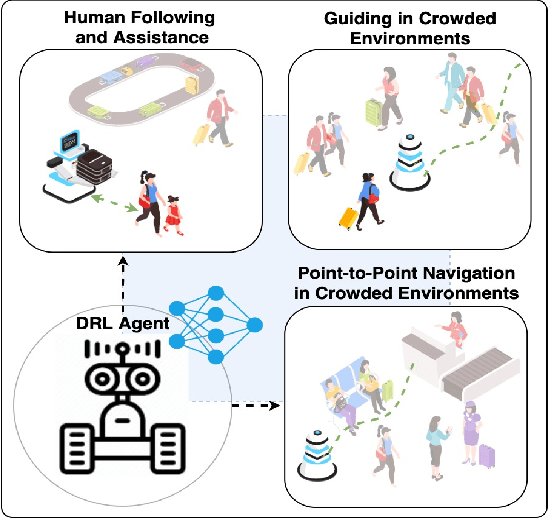
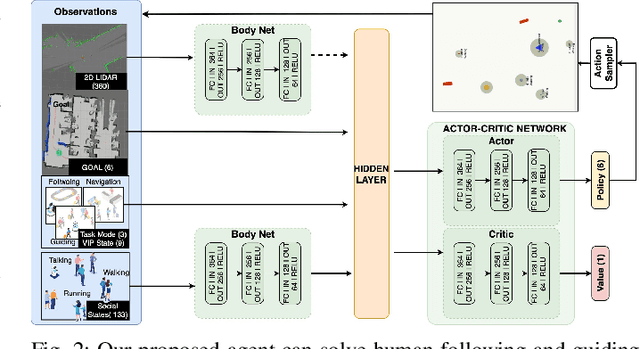
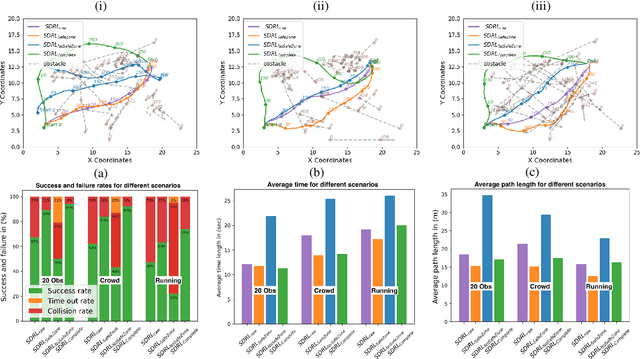
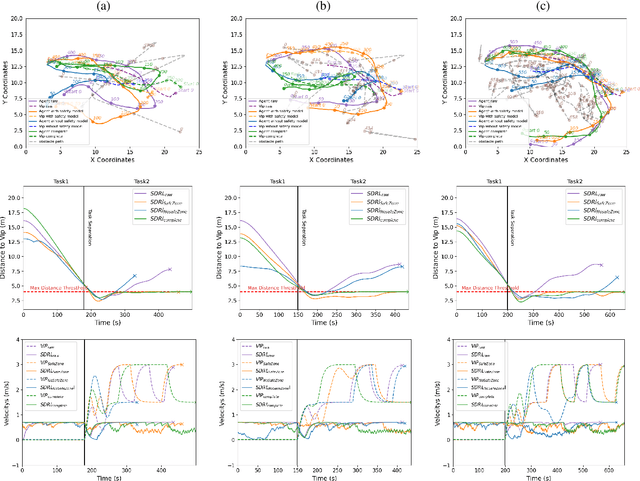
Abstract:Assistance robots have gained widespread attention in various industries such as logistics and human assistance. The tasks of guiding or following a human in a crowded environment such as airports or train stations to carry weight or goods is still an open problem. In these use cases, the robot is not only required to intelligently interact with humans, but also to navigate safely among crowds. Thus, especially highly dynamic environments pose a grand challenge due to the volatile behavior patterns and unpredictable movements of humans. In this paper, we propose a Deep-Reinforcement-Learning-based agent for human-guiding and -following tasks in crowded environments. Therefore, we incorporate semantic information to provide the agent with high-level information like the social states of humans, safety models, and class types. We evaluate our proposed approach against a benchmark approach without semantic information and demonstrated enhanced navigational safety and robustness. Moreover, we demonstrate that the agent could learn to adapt its behavior to humans, which improves the human-robot interaction significantly.
Arena-Bench: A Benchmarking Suite for Obstacle Avoidance Approaches in Highly Dynamic Environments
Jun 12, 2022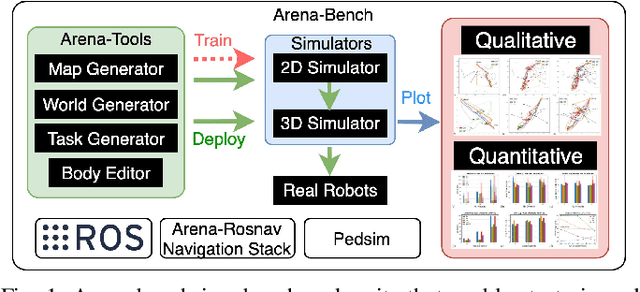



Abstract:The ability to autonomously navigate safely, especially within dynamic environments, is paramount for mobile robotics. In recent years, DRL approaches have shown superior performance in dynamic obstacle avoidance. However, these learning-based approaches are often developed in specially designed simulation environments and are hard to test against conventional planning approaches. Furthermore, the integration and deployment of these approaches into real robotic platforms are not yet completely solved. In this paper, we present Arena-bench, a benchmark suite to train, test, and evaluate navigation planners on different robotic platforms within 3D environments. It provides tools to design and generate highly dynamic evaluation worlds, scenarios, and tasks for autonomous navigation and is fully integrated into the robot operating system. To demonstrate the functionalities of our suite, we trained a DRL agent on our platform and compared it against a variety of existing different model-based and learning-based navigation approaches on a variety of relevant metrics. Finally, we deployed the approaches towards real robots and demonstrated the reproducibility of the results. The code is publicly available at github.com/ignc-research/arena-bench.
 Add to Chrome
Add to Chrome Add to Firefox
Add to Firefox Add to Edge
Add to Edge